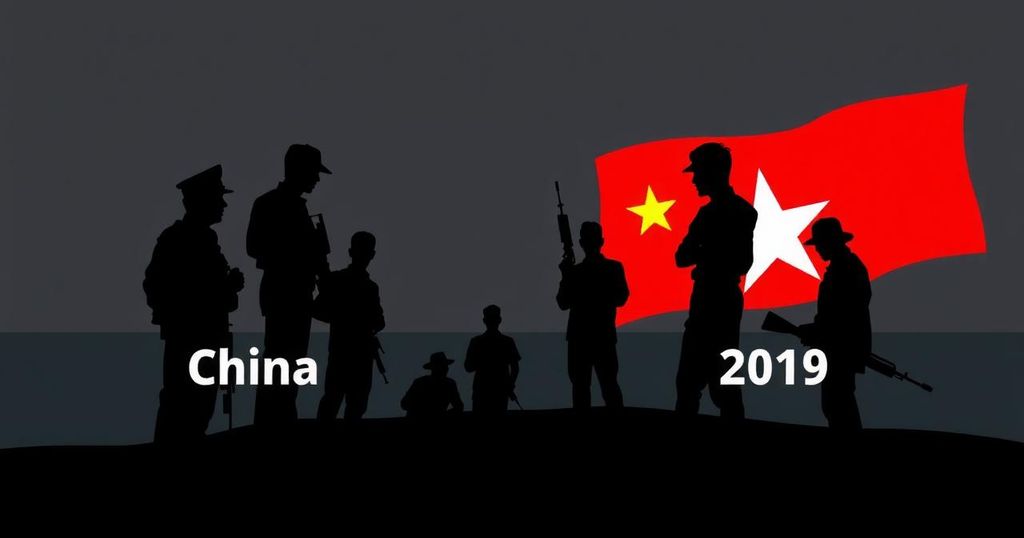China’s Strategic Border Closure Amplifies Humanitarian Crisis in Myanmar’s Northern Shan State
Summary
China’s recent border closure has exacerbated shortages of essential goods for nearly two million residents in Myanmar’s northern Shan State, following military offensives by the Three Brotherhood Alliance. This situation has caused prices to surge and access to necessary medicines to diminish significantly, raising concerns about the impact on local communities and Chinese investments in the region, which have increasingly come under the control of rebel factions.
In recent developments, nearly two million residents in Myanmar’s northern Shan State are grappling with severe shortages of essential medications and basic commodities, following a border closure enforced by China. This closure, initiated on August 25, was a response to increased military offensives by the Three Brotherhood Alliance of rebel factions, which has successfully driven the military from numerous towns in the region. The alliance, active since October 2023, now exerts control over 21 townships and five border crossings, significantly impacting local trade. According to Lway Yay Oo, a spokesperson for the Ta’ang National Liberation Army, one of the factions within the alliance, the discontinuation of cross-border trade has left local residents deprived of critical supplies. “Since China closed the border gates, and the junta has blocked trade routes, there is a serious shortage of medicine in our area,” she stated, underscoring the dire situation for her community. Local inhabitants have reported that as access to goods dwindles, prices for accessible stock have surged. A pharmacy owner corroborated this, noting the difficulty in procuring even essential medicines. “It is not easy to transport medicine, and we can only smuggle urgently needed supplies,” he explained. China’s border closure appears to be part of a broader strategy, as recent meetings between Chinese officials and Myanmar’s junta sought to ensure the safety of Chinese investments in the face of escalating conflict. Despite these assurances, control over vital Chinese projects has increasingly shifted from the junta to armed opposition forces, raising concerns about the future of these investments. The current instability has compelled rebel groups to suspend operations on certain Chinese projects, further complicating the situation as they attempt to establish conditions that would allow resumption of activities in the future. Nay Phone Latt from Myanmar’s National Unity Government (NUG) asserted that the junta lacks the ability to protect foreign investments and is unable to manage its own security effectively. He noted, “The current regime is in a position where it is unable to ensure its own security, let alone protect the citizens of the country.” Despite these multifaceted challenges, representatives from ethnic groups in Myanmar have expressed a commitment to safeguarding foreign investments, indicating a still-present potential for collaboration amid conflict. In summary, this intricate situation reflects the ongoing tensions and challenges faced by the people of northern Shan State amid a shifting political landscape, amplified by external pressures stemming from international investment interests.
The situation in Myanmar’s northern Shan State has deteriorated significantly as a result of an ongoing civil war and increased military offensives by various rebel factions, notably the Three Brotherhood Alliance. This alliance has successfully captured control over numerous townships and border crossings, leading to a critical humanitarian crisis characterized by shortages of basic necessities for the local population. The geopolitical implications are further complicated by China’s vested interests in the region, as it seeks to protect its investments while navigating the complexities of Myanmar’s internal conflicts.
In conclusion, Myanmar’s northern Shan State is experiencing a profound humanitarian crisis as a result of border closures by China, compounded by ongoing military confrontations between the junta and rebel factions. The impact on basic supplies, especially essential medicines, has reached alarming levels, compelling local populations to face extreme hardship. Meanwhile, the shifting dynamics of control over investment projects pose significant risks to foreign interests in the region, highlighting the delicate balance between ensuring security and managing the repercussions of internal strife. As the situation unfolds, it remains crucial for stakeholders to address the humanitarian needs of affected populations while navigating the broader geopolitical landscape.
Original Source: www.rfa.org








Post Comment